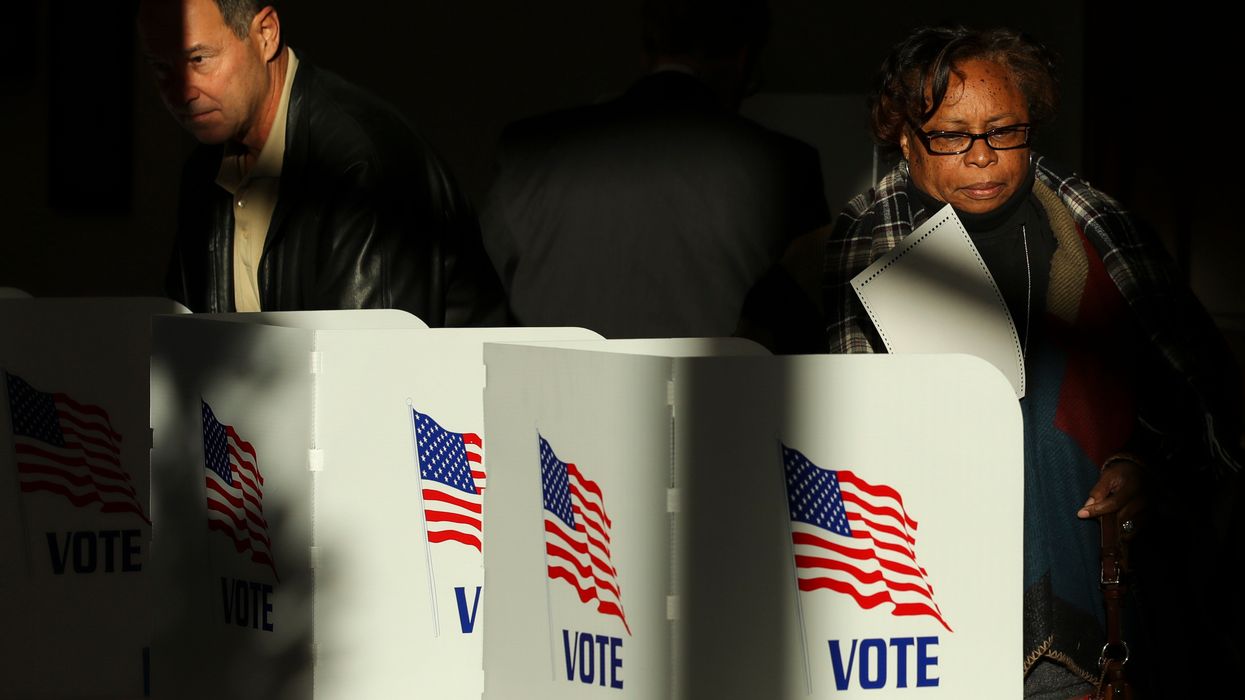The constitutionality of one of the nation's strictest curbs on felon voting was debated in a federal appeals court Tuesday.
A coalition of groups on both the left and right, from the ACLU and NAACP to the libertarian Cato Institute, have joined the cause of almost 200,000 Mississippians who have done their time but may never vote again without a governor's pardon or a reprieve from the Legislature. The state says it has almost limitless leeway under the Constitution to set those parameters.
However the case gets decided by the 5th U.S. Circuit Court of Appeals, a subsequent ruling by the Supreme Court could provide definitive word on the future of expanded voting rights for convicts, which has emerged as one of the top democracy reform causes of the decade.
At the oral arguments, the six felon plaintiffs asserted that a lifetime ban on their voting is a form of cruel and unusual punishment that violates the Eighth Amendment. They also argued that the law violates the equal protection clause of the Constitution because when it was first adopted, in 1868, the clear intent was to prevent as many black people as possible from voting and the law still affects them disproportionately.
Mississippi is among just 10 states that disenfranchise felons for long periods, sometimes forever, even once they have completed their probation and parole after prison. As a result, 9 percent of the state's adults may not vote, which is triple the national average. The number of African-Americans in that group is 127,000, or 16 percent of the black electorate, according to the Sentencing Project, which advocates for criminal justice reform.
The state Constitution took the vote away from those convicted of any of 10 felonies including murder, forgery and bigamy. Fourteen years ago the state attorney general added another dozen crimes to the list, from timber larceny to carjacking.
A convict may vote again only if pardoned by the governor or if a suffrage bill is passed just for them by two-thirds of the House and Senate. Eighteen such measures were introduced last year and none got a vote.
"With extremely limited and arbitrary exceptions, a citizen convicted in a Mississippi state court of a disenfranchising felony will never again vote in the state, no matter how minor the underlying crime or how long the citizen may live after sentence completion," the plaintiffs say in a brief produced by the Southern Poverty Law Center.
"There is no question that the U.S. Constitution expressly approves of the right of a State to disenfranchise felons — including permanently," the state argues in reply brief, and besides the plaintiffs have not proved any "present-day discriminatory effects."
In its brief, the Cato Institute says the roster of crimes on the list for permanent disenfranchisement is unconstitutionally arbitrary.
"For every crime on the list there is a similar or even worse crime not on the list. Check fraud means permanent disenfranchisement. But credit card fraud carries no similar penalty," the group argued. "By disenfranchising individuals for minor crimes, Mississippi drastically departs from the states that understand permanent disenfranchisement for what it is — among the most severe penalties our society can inflict."
The state Constitution that detailed the initial list of felonies is the same document that also allowed the state House to pick a governor in some circumstances. Many of the same groups representing the prisoners have also sued in state court to have that system nullified as unconstitutionally discretionary to black voters.




















